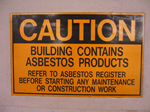How’s Your Training Program?
Do you have a strong employee safety training program? While training alone is not enough to prevent workplace injuries and illnesses, it remains a key element of an effective safety and health management program. Research has shown that education and training can increase workers’ knowledge and help guide their actions and behaviors on the job. […]









